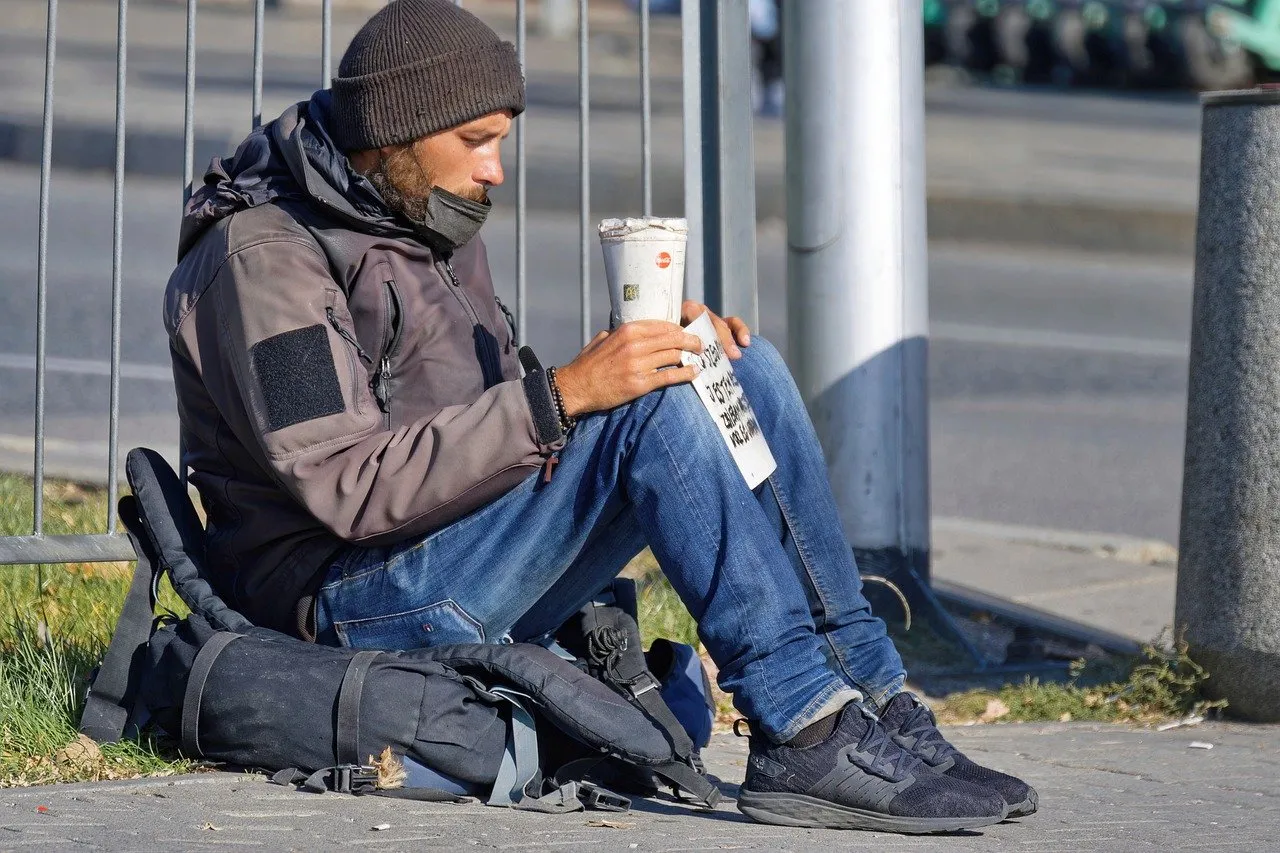Is Panhandling Illegal In Texas? An In-Depth Look At State Laws
Panhandling, also known as begging, is a complex and controversial issue across the United States. If you want a quick answer for Texas laws: panhandling is legal throughout most of the state, with restrictions on where and how you can ask for money.
This comprehensive guide will examine panhandling laws in Texas in detail. We’ll cover whether panhandling is allowed in major cities like Houston, Dallas, Austin, and San Antonio. You’ll learn what constitutes illegal aggressive panhandling, which public places have bans or restrictions, and what penalties exist if you run afoul of the law. By the end, you’ll understand the ins and outs of legal panhandling in the Lone Star State.
Overview of Panhandling Laws in Texas
When it comes to panhandling, Texas does not have a statewide ban. However, various cities and counties within the state have implemented their own regulations to address this issue. It is important to familiarize yourself with the specific laws in your area to ensure compliance and avoid any potential legal consequences.
No Statewide Ban
In Texas, there is no statewide ban on panhandling. This means that individuals have the right to engage in panhandling activities, such as asking for money or donations, in public spaces. However, it is essential to note that there are still certain restrictions and regulations enforced by local jurisdictions.
Some cities and counties have implemented ordinances that restrict or prohibit panhandling in certain areas. These areas may include specific streets, intersections, or near certain establishments. Violating these local regulations can result in fines or other legal consequences.
City and County Regulations
Each city and county in Texas has the authority to establish its own regulations regarding panhandling. These regulations aim to balance the rights of individuals engaging in panhandling activities with the concerns of public safety and order.
For example, in Houston, panhandling is prohibited within 8 feet of an ATM, bus stop, outdoor dining area, or public restroom. Additionally, panhandlers are not allowed to approach individuals in a threatening or aggressive manner. Additionally, the City of Houston Code of Ordinances, Chapter 1, Article 1, Section 28-46, lists aggressive panhandling as a misdemeanor that is punishable with a fine of up to $500.
Violations of these regulations can result in citations or even arrest.
Similarly, in Austin, panhandling is prohibited in certain areas designated as “no solicitation zones.” These zones include downtown areas and around popular tourist attractions. Violating these regulations can lead to fines or other legal consequences.
It is worth noting that the laws and regulations surrounding panhandling can vary significantly from one city or county to another. Therefore, it is crucial to research and understand the specific regulations in your area to avoid any legal issues.
For more information on panhandling laws in Texas, you can visit the official websites of your local city or county government. They often provide detailed information and resources regarding the regulations and restrictions in place.
Panhandling Laws in Major Texas Cities
Houston Regulations
In Houston, panhandling is regulated by several city ordinances. One of the key regulations is that panhandlers cannot approach people in certain locations, such as near ATMs, public transportation stops, or within 8 feet of an outdoor dining area.
Additionally, aggressive panhandling, which includes following or touching someone without their consent, is strictly prohibited. Violators can face fines or even imprisonment. The city of Houston also provides resources and support for individuals experiencing homelessness, aiming to address the root causes of panhandling.
Dallas Rules
Dallas has its own set of rules when it comes to panhandling. The city passed a law against panhandling, but many oppose such a regulation.
Dallas has implemented these regulations to ensure public safety and maintain order in busy areas. It’s important to note that while panhandling is restricted, the city of Dallas also has various programs and services to help individuals facing homelessness.
Austin Guidelines
Austin has taken a different approach to panhandling compared to other cities in Texas. Instead of implementing strict regulations, the city has focused on providing resources and support for individuals experiencing homelessness.
Austin’s approach is centered around the belief that addressing the root causes of panhandling, such as lack of affordable housing and access to mental health services, is crucial. While panhandling is not explicitly prohibited in Austin, there are laws in place to maintain public safety and prevent aggressive behavior.
The city encourages residents and tourists to support local organizations that work towards homelessness prevention and providing assistance to those in need.
View this post on Instagram
San Antonio Restrictions
In San Antonio, there are regulations in place to control panhandling within the city limits. Panhandlers are not allowed to solicit within 50 feet of an ATM, public transportation stop, or outdoor dining area. Additionally, they cannot approach or follow someone after receiving a refusal.
San Antonio has partnered with various organizations and initiatives to address homelessness and provide support to individuals in need. The city encourages residents to donate to local charities and organizations that work towards finding sustainable solutions for homelessness.
View this post on Instagram
It’s important to familiarize yourself with the specific panhandling laws in each city to ensure compliance. While the regulations may vary, the common goal is to balance public safety with providing assistance and resources to those facing homelessness.
What Constitutes Illegal Aggressive Panhandling?
Threats of Bodily Harm
In Texas, aggressive panhandling is considered illegal and can be classified as a criminal offense. One of the key factors that determine whether a panhandler’s behavior is aggressive is the presence of threats of bodily harm.
If a panhandler intimidates or makes explicit threats towards individuals in order to obtain money or goods, it crosses the line into illegal behavior.
Unwanted Physical Contact
Another form of illegal aggressive panhandling is unwanted physical contact. This occurs when a panhandler touches or attempts to touch another person without their consent. It is important to remember that physical contact should always be consensual, and any actions that violate personal space can be considered illegal.
Obstructing Public Ways
Panhandlers are not allowed to obstruct or impede the flow of pedestrian or vehicular traffic in public areas. When panhandling activities hinder the movement of others or create a hazardous situation, it is considered illegal. This includes blocking sidewalks, entranceways, or intersections.
The goal is to ensure the safety and accessibility of public spaces for everyone.
It is important to note that the specific laws regarding aggressive panhandling may vary from city to city within Texas. Local ordinances may provide more detailed guidelines on what constitutes illegal behavior in each jurisdiction.
Therefore, it is advisable to familiarize yourself with the laws and regulations of the specific area you are in.
If you witness or experience illegal aggressive panhandling, it is recommended to report the incident to local law enforcement. They can take appropriate action to address the situation and ensure the safety of the community.
Public Places with Panhandling Bans or Limits
When it comes to panhandling, different states have different laws and regulations in place. In Texas, the legality of panhandling varies depending on the specific location. Let’s take a closer look at some public places in Texas where there are bans or limits on panhandling.
Public Transportation
One area where panhandling is often restricted is public transportation. Many cities in Texas have implemented rules to address panhandling on buses, trains, and other forms of public transportation. These rules aim to ensure the safety and comfort of passengers and prevent any potential disruptions.
View this post on Instagram
Panhandling in such places may be prohibited or limited to certain designated areas.
Roadways and Intersections
Panhandling at roadways and intersections is another area where restrictions are often in place. This is done to maintain the safety of both panhandlers and motorists. Standing on or near roadways can be dangerous, and distractions caused by panhandling can potentially lead to accidents.
Therefore, many cities in Texas have enacted laws that prohibit panhandling in these areas. It is important to note that these laws are in place to protect everyone’s well-being.
Near Banks and ATMs
In order to prevent potential scams or theft, many cities in Texas also prohibit or limit panhandling near banks and ATMs. These regulations are put in place to protect individuals who may be vulnerable to fraudulent activities or aggressive behavior.
By having these restrictions, it helps ensure the safety and security of those using these financial institutions.
It is crucial to familiarize ourselves with the specific laws and regulations regarding panhandling in each city and county in Texas. These laws are designed to strike a balance between protecting the rights of individuals who panhandle and maintaining public safety and order.
Penalties for Breaking Panhandling Laws
Fines
When it comes to panhandling laws in Texas, there are penalties in place for those who break them. One of the most common consequences is the imposition of fines. These fines vary depending on the specific city or jurisdiction, so it’s important to be aware of the regulations in the area where you are panhandling.
For example, in Houston and Austin panhandling can result in fines up to $500. These fines are intended to discourage panhandling and maintain public order in the community.
It’s worth noting that fines can be a burden on individuals experiencing homelessness or financial hardship. Advocates argue that these penalties only exacerbate the challenges faced by already vulnerable populations.
Jail Time
While fines are the most common penalty for panhandling, in some cases, individuals may also face the possibility of jail time. However, it’s important to highlight that imprisonment is typically reserved for repeat offenders or those who engage in aggressive or threatening behavior while panhandling.
In Dallas, for instance, anyone found guilty of aggressive panhandling can face jail time. This includes acts such as blocking someone’s path, following them, or using abusive language. These measures are put in place to protect the safety and well-being of both panhandlers and the general public.
Court Fees
In addition to fines and potential jail time, panhandlers in Texas may also be required to pay court fees if they are charged with violating panhandling laws. These fees can vary depending on the jurisdiction and the severity of the offense.
These fees are intended to cover administrative costs associated with processing the case.
It’s important for panhandlers to be aware of these potential court fees, as they can further exacerbate the financial challenges faced by individuals experiencing homelessness or economic hardship.
For more information on panhandling laws in Texas, you can visit the National League of Cities website, which provides an overview of panhandling regulations in different cities across the state.
Conclusion
While panhandling laws vary somewhat across Texas, most cities allow peaceful panhandling with reasonable restrictions on locations and behavior. By understanding the differences in regulations between major urban areas, what constitutes aggressive panhandling, and where solicitation is prohibited, you can avoid running afoul of the law.
Panhandling in a safe, non-intrusive manner is legal in most public spaces in Texas. But be sure to check local ordinances wherever you go, refrain from aggressive tactics, and avoid banned areas like public transit to confidently stay within your rights.








